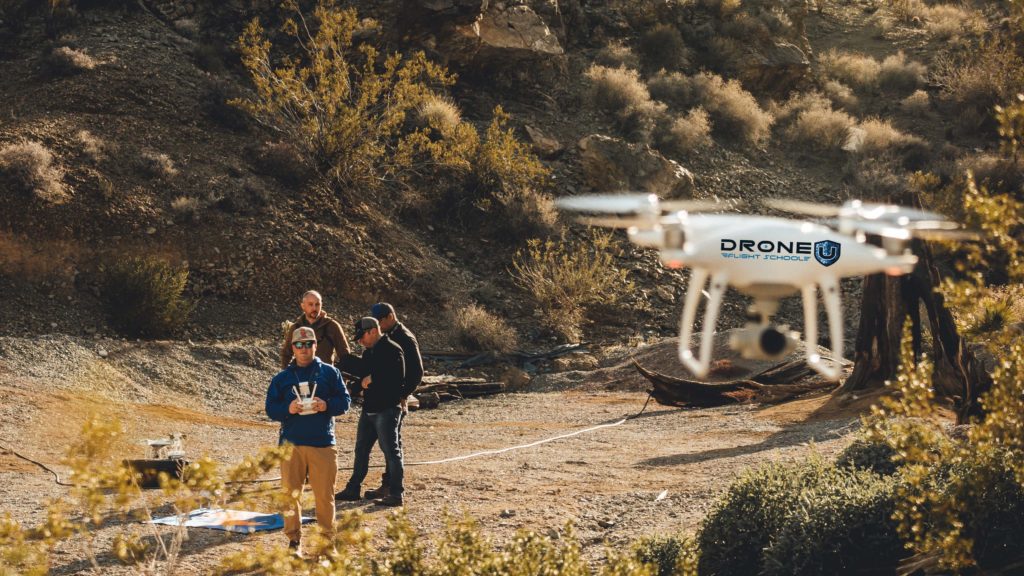
In our recent article asking legal questions around Skydio, many drone pilots asked us why did you ask legal questions about drones?
Are Skydio drones legal to fly?
What a question and potential accusation for a drone manufacturer.
When we asked this question, the immediate feedback was “why are you going after skydio?” Frankly, we’re not going after Skydio, we believe we are asking a much larger macro question regarding the state of the industry.
Skydio recently and blatantly stated they want to eliminate the drone pilot. After that talk at the Drone Deploy conference, we watched a twitter battle between Skydio and @dronelaws. Arguing about the practical uses of drones and autonomy. Frankly, Brendan Schulman was asking some legitimate questions. Arguments flew about what drones are actually capable of what. Skydio even put out a video showcasing their autonomy versus drone pilots. Which was the most garbage comparison i’ve seen in my life. That video compared Skydio’s autonomy to a Bestbuy pilot who decided they’d start a drone career after dropping out of Harvard.
You could easily assume that after this course of events, our legal question might have been in jest.
As CEO of Drone U, let me be first to tell you, that is not why we asked the legal question.
Our goal was not to poke the bear. Our goal was not to piss of Adam Brie or Fritz (great guy) or G.
Our goal is to be intellectually honest. Intellectual honestly will allow business owners, pilots and public agents to make smart calculated decisions. Not outright gamble their business and career on marketing claims.
Remember when marketing hype led to problems in this industry? Frankly, other drone manufacturers had promised features that never came to fruition. A particular drone was marketed to have features it couldn’t offer reliably. When agencies and companies purchased these aircraft, they typically wiped out their budget. When the aircraft couldn’t perform the job, many public safety agencies couldn’t just go out and buy new equipment. This series of events typically leads to a chief or administrator not approving future budget for drone programs. Numerous agencies are now going to be stuck for years until they can get budget approved again.
Skydio is actively marketing to public safety agencies. Skydio even markets that their drone can fly BVLOS missions for law enforcement. (Bombshell coming later). Skydio has been actively pursuing the public safety vertical for some time.
Frankly, we asked the question of Skydio drones being legal to acquire an answer from the FAA.
It is clear the FAA hasn’t thought this far ahead. How could they?
When they don’t know how to fly drones themselves? Should we expect them to have practical knowledge, my answer is yes if they’re tasked with keeping airspace safe.
If the FAA is tasked to keep airspace safe, well then they should probably prosecute citizens who shoot firearms at drones. (Send them a civil fine, we know you’re not law enforcement FAA) The FAA should also be thinking about practical operations and how to fly within the given rules.
Why did we ask the legal question about Skydio?
Simply put, because we do not want American heros setup to fail. When Skydio is marketing to first responders, public safety and law enforcement… they’re marketing to our heros. The real heros.
We should not be adding liability to our heros. We shouldn’t inhibit a public safety agencies ability to fly drones now, next year and for the foreseeable future. How? All because they blew their budget load on equipment that doesn’t take flight. Now the comptroller isn’t approving any new drone purchases. How many lives will be lost because a group of firefighters cant use a drone to augment their jobs?
What happens when a firefighter takes flight with Skydio, crashes and insurance won’t cover the damage? We’re just going to leave the firefighter hanging? No…
The fact of the matter is quite simple. Drones are tools used to save lives. There is inherent risk in flying, which is often mitigated by insurance. (let’s be real) If insurance won’t cover drones who do not meet Part 107 guidelines, then we are setting up public safety to fail. Not to mention commercial pilots and other industries.
Frankly we refuse to let public safety get steam rolled AGAIN.
Now, if you’ve been reading my articles for a few months now… you might have already connected the dots and realize the much larger problem as a whole.
Make sure to subscribe to our newsletter. You won’t want to miss my next article.
Thanks for reading this whole article to understand why we’re trying to protect pilots.
-Paul Aitken



Add Your Comment